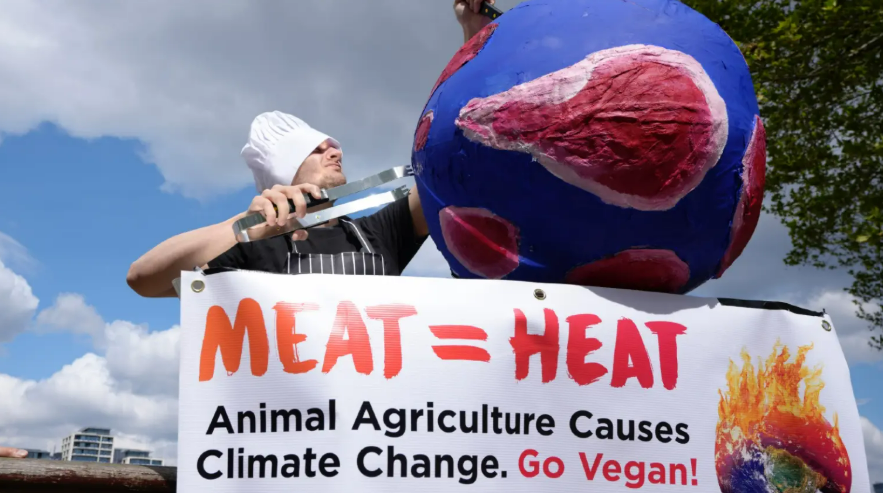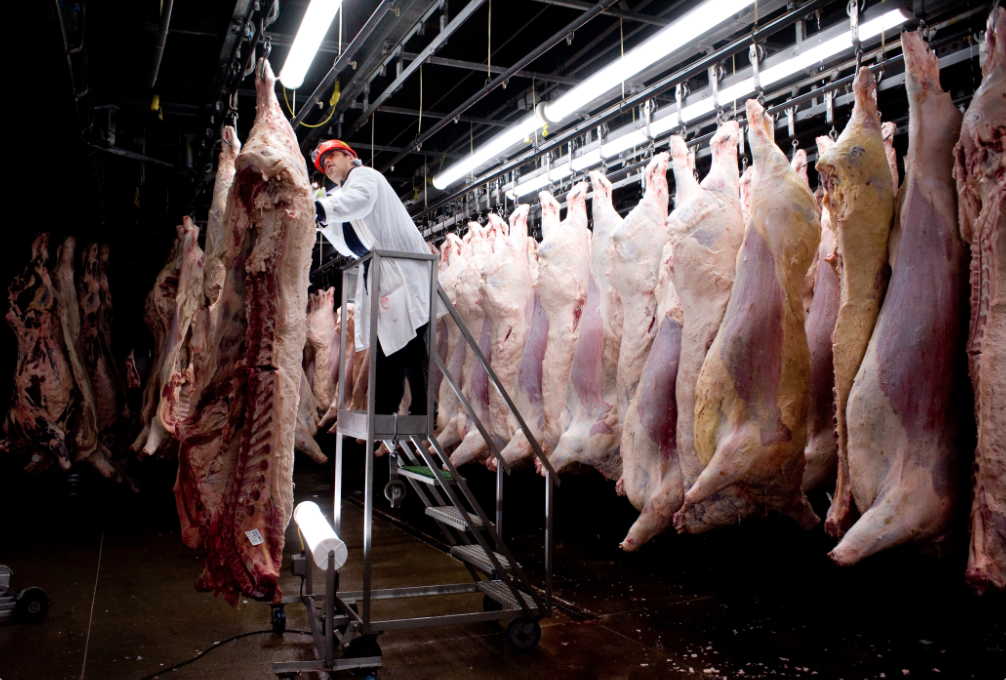
Over the past decade, there has been an aggressive push to replace traditional meat with plant-based and lab-grown alternatives. Governments, celebrities, and multinational corporations are all advocating for a meat-free future, citing reasons such as climate change, health benefits, and sustainability.
But is there more to this shift than meets the eye? Could this be part of a global food agenda designed to control what we eat, who profits, and how our food is produced? Let’s explore the growing corporate influence on dietary choices, the role of the plant-based industry, and the hidden risks of lab-grown meat, and how they tie into the global food agenda.
1. The Rise of the Plant-Based Industry
The plant-based food industry has exploded, with companies like Beyond Meat and Impossible Foods leading the charge. With billions of dollars invested by venture capitalists and food conglomerates, plant-based products are no longer just a niche trend.
Who’s Funding the Meat-Free Movement?
- Bill Gates and Big Investors: Gates has heavily invested in alternative proteins, arguing that animal agriculture is unsustainable.
- Global Food Corporations: Nestlé, Tyson Foods, and Cargill have all entered the plant-based and lab-grown meat markets.
- Government Policies and Incentives: Many Western governments are subsidizing plant-based food production while imposing stricter regulations on traditional livestock farming.
While plant-based diets can be beneficial for some, the aggressive push for meat alternatives raises questions about who really benefits from this transition and how it connects to the global food agenda.
2. The Push for Lab-Grown Meat and Its Hidden Dangers
Lab-grown meat, also known as cultivated or synthetic meat, is being hailed as the future of protein. Companies like Memphis Meats and Eat Just promise a sustainable, cruelty-free alternative to traditional livestock. However, the long-term effects of lab-grown meat consumption remain unknown.
Concerns About Lab-Grown Meat:
- Genetic Engineering Risks: Many lab-grown meats are produced using genetically modified cells, raising concerns about unforeseen health impacts.
- High Processing Levels: Unlike natural meat, synthetic meat is a highly processed product, often requiring chemical additives.
- Dependence on Corporations: Unlike traditional farming, where anyone can raise animals, lab-grown meat production is controlled by a handful of biotech firms.
If corporations control food production at this scale, will consumers have any real choice in the future, or will they be locked into a global food agenda dictated by corporate giants?
3. Climate Change and the Anti-Meat Narrative
A major argument for reducing meat consumption is climate change. Advocates claim that livestock farming contributes significantly to greenhouse gas emissions, deforestation, and resource depletion.
The Reality Behind the Numbers:
- Selective Data Use: Some reports exaggerate cattle’s environmental impact while downplaying the carbon footprint of industrial crop farming.
- Sustainable Meat Farming Exists: Regenerative agriculture practices can improve soil health and biodiversity while reducing emissions.
- Transport and Industry Are Bigger Polluters: While livestock farming contributes to emissions, industries like transportation and energy production have a much larger impact.
While environmental concerns are valid, are corporations using climate change as an excuse to shift dietary habits for profit? Is this yet another pillar of the global food agenda?
4. The Corporate Control of Food Supply
As governments push for reduced meat consumption, food industry giants are seizing control of the alternative protein market. This shift consolidates food production into the hands of a few powerful players, giving them control over what the population consumes.
Potential Risks of Corporate Food Control:
- Monopolization of Food Supply: If only a handful of companies control meat alternatives, food security becomes fragile.
- Loss of Dietary Freedom: If traditional meat becomes too expensive or restricted, consumers may be forced to accept lab-grown substitutes.
- Dependency on Processed Foods: Highly processed meat alternatives may lead to long-term health concerns, just like early industrial food products did.
Could this transition be about controlling food systems rather than saving the planet? How does this fit into the global food agenda?
5. The Future of Meat: Will It Disappear?
If the current trajectory continues, traditional meat consumption could become a luxury reserved for the wealthy. Meanwhile, the general public may be left with synthetic proteins and plant-based substitutes, all controlled by global food corporations.
What Can Consumers Do?
- Support Local Farmers: Buying from small-scale farmers helps keep traditional agriculture alive.
- Question Corporate Narratives: Not every climate solution is about sustainability—some are about profit.
- Diversify Protein Sources: A balanced diet should include options beyond highly processed alternatives.
The war on meat is far from over. As governments, corporations, and investors shape the future of food, consumers must ask themselves: Is this really about sustainability, or is it about control?
Conclusion
The shift away from traditional meat is happening faster than ever, fueled by corporate interests, government policies, and environmental activism. While some alternatives offer benefits, the risks of corporate food dependency, processed substitutes, and monopolized supply chains cannot be ignored.
Will we still have a choice in what we eat, or will the future of food be dictated by a global food agenda designed to centralize power in the hands of a few corporations? The answer lies in how consumers respond to the growing push for a meat-free world. 🍔🔍





